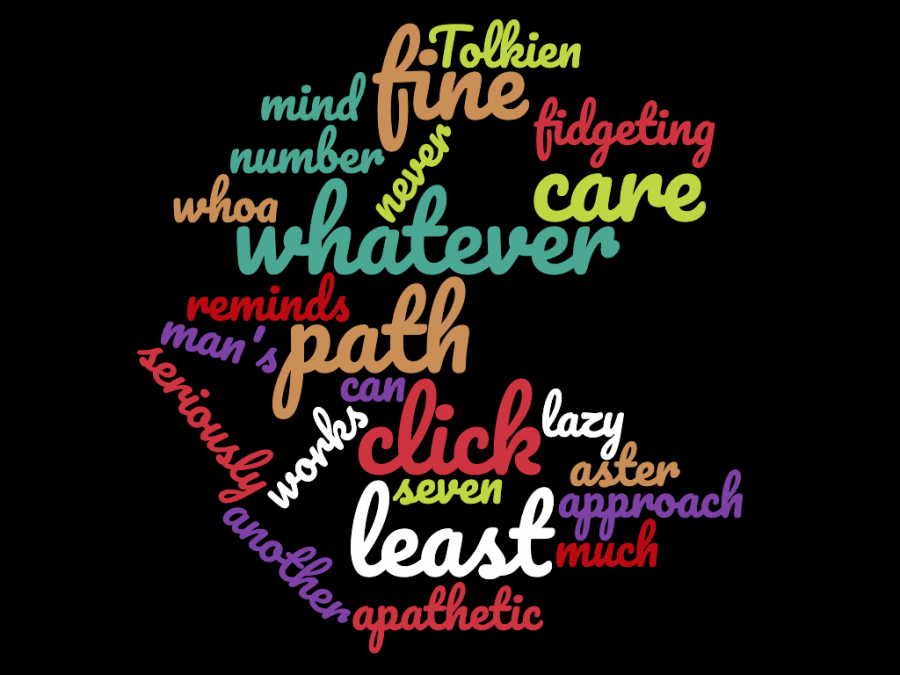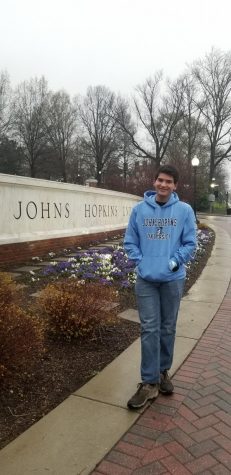Opinion | Why I hate news and love journalism
January 25, 2021
This is my fourth year writing for The Evanstonian, and, while it has been an incredibly unpredictable, horrifying, tear-inducing, screaming-into-the-darkness kind of year, it has also been my most prolific year of publishing and has produced the work I’m most proud of. There are a lot of reasons for this: I’ve written about topics that I care about and have been wrestling with for some time, I’ve worked on pieces that have prompted important discussions, and there is no shortage of relevant issues to discuss, but I think the heart of it boils down to a simple fact:
I HATE WRITING NEWS.
Don’t get me wrong. I love the News section of The Evanstonian. I have so many great memories working in it—learning to structure a piece according to the inverted pyramid, spending time pouring over articles with editors and advisers who taught me how to think critically about writing and give constructive suggestions, forming some of my closest friendships—but I hate the institution that is news journalism.
News is the antithesis to everything I love about writing; it is formulaic, following a clear, patterned structure applied ad nauseum; it is short and to the point. While this is useful to inform oneself about the world and plays an important role in ensuring the continued existence of a democracy, especially this year, it doesn’t captivate me in the way that a novel does, doesn’t enthrall me the way that a good poem or song does.
In my mind, writing is something to be lived with and to evolve through. It is not something written for the sake of analysis or argument but something around which we construct our world, our lives. We use the stories that we tell and pass down through the ages as the foundation of our cultures, of our identities. We craft new stories and modify old ones to fit the narratives that we are trying to tell about the world and about ourselves. Who hasn’t gotten lost in a story? A book that drew you in, forcing you to keep turning the pages as the tension grew? A movie that you couldn’t help but watch, some magic gluing your eyes to the screen as colors flash before you? A TV show that you couldn’t stop thinking about between episodes as plot lines and characters twirled around your head? I know that I’ve been in these places for more time than I care to admit, and I’ve loved every moment of it.
I want to walk the halls of Greendale Community College, the doors of Pawnee City Hall and Dunder Mifflin Scranton; stroll through the crystal catacombs of Ba Sing Se and the tunnels beneath Mount Justice; wander through the woods of Laurelindórenan and traverse the Hithaeglir before sitting down for second breakfast in Bag End. The power of stories is that they ensnare us, they take us to a world we want to be in and allow us to escape the commotion of the world around us. They create a grand illusion by which we want to be surrounded. Storytelling is, to quote author Michael Chabon, “a gesture of hope, offered against hope, in a time of desperation… A yearning that a few magic words and an artful hand might produce something—one poor, dumb, powerless thing—exempt from the crushing strictures, from the ills, cruelties and inevitable failures of the greater Creation. It [is] the voicing of a vain wish, when you [get] down to it, to escape…. [Could there be] any more noble or necessary service in life.”
More than that, stories allow us to codify and contemplate the beliefs that we carry and the futures that we want to create. We need to tell stories, fantasies, to create our world; we must believe in things that aren’t real if they are to become. These are the elements of storytelling that I love; none of them are present in traditional news journalism.
Furthermore, in this year of extremes, the news has seemed a burden more than anything else, something that would only increase my anxieties and stress. When all I see is a deranged president, horrifying (and horrifyingly common) murders, a disease ravaging the world… Why would I continue to watch?
You may ask, “This seems true enough, but why put it at the start of a school newspaper that routinely publishes the exact material that you’re railing against?”
This is an incredibly valid question, but, fortunately, one that has two simple answers—almost as if I’m crafting a story to answer this exact question. The first is that I wanted to write, sing a few magic words, plain and simple. The second, and vastly more important, is that this is no ordinary issue of The Evanstonian.
Over the past semester, the 22 students in the Advanced Journalism classes have been working on long-form research projects, focusing on one element of the Evanston community. The topics selected ranged from the transgender and gender nonconforming communities and sexism to climate justice and sports during quarantine, but all of them were given an immense level of care and attention. Each writer spent time conducting interviews, gathering information and thinking about the complexity of the topics before creating a set of articles: an interview piece, a profile, an opinion and a long-form feature piece. It is, save a few exceptions, these feature articles that are found in the following 14 pages.
These magazine-style pieces represent the culmination of a semester’s worth of tireless work and dedication, and each tackles a complex topic with poise and sophistication. From body positivity and the gender confidence gap to the ramifications of COVID-19 on athletics and community service, there is a wealth of perspectives and views on the Evanston community.
This is why I love journalism. Good journalism does more than inform us about the goings-on of the world; good journalism connects us with others and with ourselves. The stories presented in these pages aren’t going to inform you about Biden’s inauguration or the COVID-19 vaccine rollout, but they will show you something more important: the common humanity we all share. Each and every one of the pieces that follows highlights something about the human condition, the state of the world that is and what hopes we can carry into it. These are human stories. They won’t generate the immense outrage that news media demands, nor will they lose relevance a week after publication; they will truthfully reflect some aspect of Evanston while demanding your attention and thought.
The ability to devote an issue to this type of storytelling is a gift, one that has not been taken lightly. These are the kinds of stories that I enjoy telling; these are the kinds of stories that I want to listen to and learn from. Stories unite people—that’s all they’ve ever done—and that’s why I love journalism. Journalism offers the chance to tell stories that matter and that have an impact.
If I’ve needed to write pieces that I don’t look back on with pride for a few years to learn that, it seems like a worthwhile trade.










